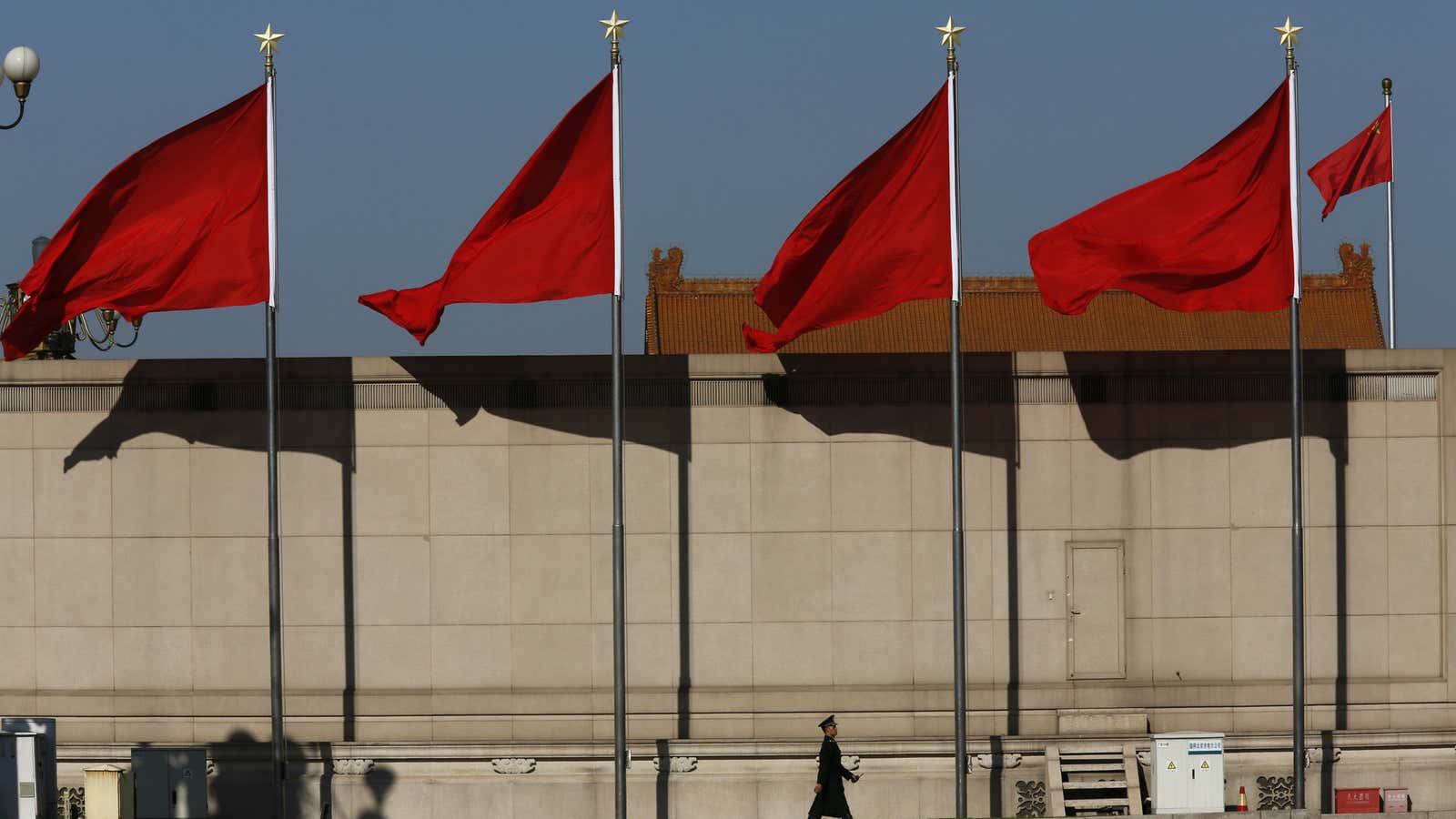US politicians are showing an interest in the pro-democracy protests that started in Hong Kong more than seven weeks ago, sponsoring a new bill late last night that threatens to inflame the contentious relations between the US and China.
The legislation calls on the US government to support Hong Kong protesters’ demands for universal suffrage, and is sharply critical of China. It is particularly unusual because it brings together Republicans and Democrats despite the bitter divide between the parties. China’s treatment of Hong Kong, and particularly the city’s demands that it be allowed to choose its own candidates in the 2017 elections, appears to be a rare issue that both US parties can agree on:
- “Hong Kong’s autonomy and freedoms—essential to its relations with the U.S.—are under threat from China,” Sherrod Brown, a Democrat from Ohio, said in a statement. “We must strongly support the universal rights of the people of Hong Kong, including free and fair elections in 2017 and beyond.”
- “China remains just as committed as ever to suppressing dissent and preventing democracy in Hong Kong as it is on the mainland,” said Marco Rubio, a Florida Republican. “The U.S. should make clear that we stand on the side of the democratic aspirations of the people of Hong Kong and against attempts to suppress their voices.”
- “Civil society and democratic freedoms are under attack around the world and Hong Kong is on the front lines,” said Ben Cardin, a Democrat from Maryland.
The bill asks for additional US monitoring of Hong Kong’s political system, and requires president Barack Obama to “certify that Hong Kong is sufficiently autonomous before enacting any new laws or agreements affording Hong Kong different treatment from the People’s Republic of China.” Whether the measure stands any chance of passing is unclear.
A Nov. 20 Congressional hearing on the issue will “examine China’s commitments to Hong Kong and the international community in light of the recent pro-democracy protests,” and attempt to answer questions like “What do the protests mean for the future of human rights and democracy in Hong Kong and China?”
The proposed bill and the hearing are likely to infuriate officials in Beijing, which has warned against foreign governments supporting the protests, or even commenting on them, and blamed their very existence on foreign backers determined to undermine China. The announcement takes place just days after US president Barack Obama and his Chinese counterpart Xi Jinping announced a series of diplomatic agreements in Beijing. Obama said during his visit that the US had played no role in the protests.
